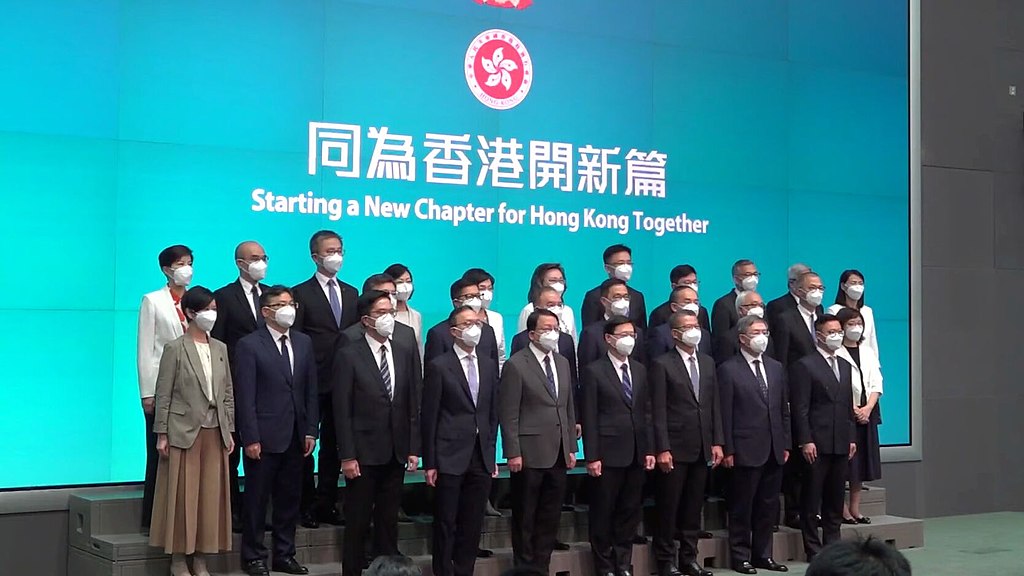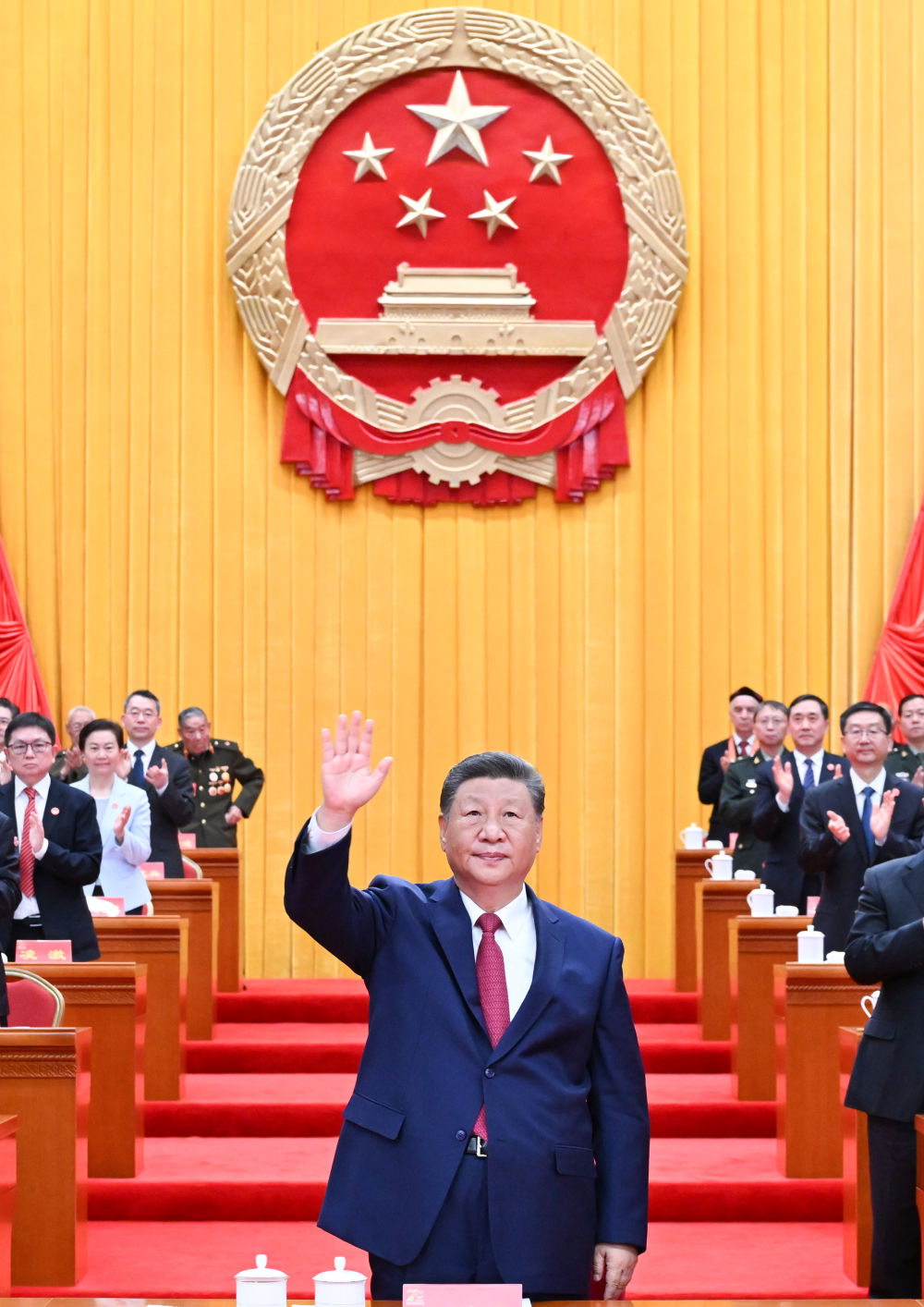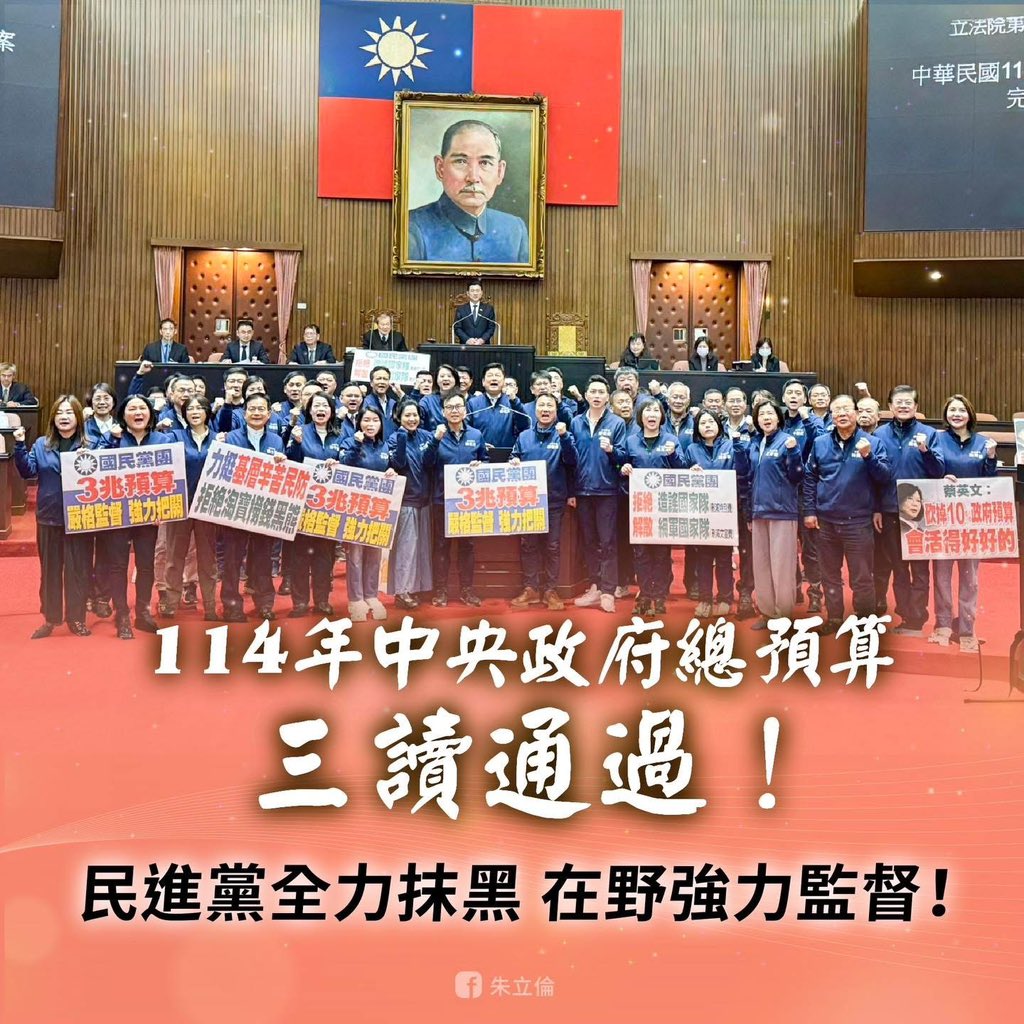
Article 23 Legislation and the Export of Hong Kong’s Human Rights Violations
Article 23 Legislation and the Export of Hong Kong’s Human Rights Violations
Executive Summary:
- The Safeguarding National Security Ordinance (SNSO) introduced under Article 23 of the Basic Law prohibits five types of activities which HKSAR officials intend to declare as “offenses,” and has proposed provisions which are vague and criminalize the peaceful exercise of human rights while undermining rights to fair trials and due process in the HKSAR.
- The SNSO is designed to specifically target collaborations with foreigners and foreign organizations and increases the power of the PRC to interpret the law in the HKSAR, further eroding the city’s judicial independence and high degree of autonomy. The SNSO’s global jurisdiction and extraterritorial clauses also echo PRC laws.
- The Hong Kong Special Administrative Region (HKSAR) conforms to broader trends in the People’s Republic of China’s (PRC) approach to human rights and international norms by echoing tactics the PRC has used on its own dissidents both at home and abroad. These approaches may also serve as a playbook for other authoritarian and aspiring authoritarian regimes.
- The HKSAR and PRC employ several identical narratives in rebutting external criticism including whataboutism and the narrative is that international human rights discourse is derivative of western hegemony.
This week, the Hong Kong Special Administrative Region (HKSAR) Court of Appeals ruled that the pro-democracy song “Glory to Hong Kong” should be banned on the grounds of safeguarding national security. The court asked platforms to ban the song in the HKSAR and the rest of the world, arguing that “A much more effective way to safeguard national security in such circumstances is to ask the [online platforms] to stop facilitating the acts being carried out on their platforms” (HKSAR Judiciary, May 8). Within hours, the song was unavailable and appears to have been removed from platforms in the HKSAR, and indeed, around the world (X.com/@BakaChocolate, May 8). This attempt at global censorship is the latest development in the HKSAR’s export of its human rights violations. It is also the latest evidence of the instrumentalization of the HKSAR by the government of the People’s Republic of China (PRC) to promote its human rights diplomacy. This case could be used as a legal precedent for subsequent national security-related cases.
At the end of March 2024, the HKSAR passed the Safeguarding National Security Ordinance (SNSO) under Article 23 of the Basic Law (the HKSAR’s “mini constitution”) (Hong Kong eLegislation, March 23: English, Traditional Chinese). Its introduction was met with no protests within the city and saw little public criticism. Instead, the legislation entered into law in record time following a rushed, one-month public consultation period (Hong Kong Free Press, March 19). It prohibits five types of activities and includes vague provisions that criminalize the peaceful exercise of human rights. The law will have a chilling effect on many Hong Kongers. Those accused of violating Article 23 may have their HKSAR passports canceled, their professional qualifications revoked, and may be temporarily removed as company board directors. The law also provides a basis to freeze the accounts of individuals found providing access to assets for people labeled “absconders.” These sections of the law are yet to be enforced, but the legal basis for doing so now exists.
International Law Violations and Extraterritorial Provisions
By enforcing the 2020 National Security Law (NSL), the PRC and HKSAR are in violation of their international legal obligations and erode the rules-based international order. They have also disregarded concerns and recommendations raised by the United Nations (UN) and UN member states. Since 2020, the UN Human Rights Committee and others (United Nations, November 15, 2023) have urged the HKSAR to repeal and refrain from applying the NSL. However, the new SNSO will further violate fundamental rights and freedoms by supplementing the NSL (HKSAR, March 17, 2021).
In March, six UN Special Rapporteurs published a letter expressing concerns that the SNSO violates human rights (United Nations, March 22). They warn that it “includes numerous measures that would significantly and unduly limit the exercise of human rights and fundamental freedoms and would be incompatible with the Universal Declaration of Human Rights (UDHR), the International Covenant on Civil and Political Rights (ICCPR), and the International Covenant on Economic, Social, and Cultural Rights (ICESCR).” The SNSO will violate freedoms of opinion and expression, peaceful assembly and association, freedom from arbitrary detention, the right to a fair trial, freedom of movement, the right to privacy, the right to take part in the conduct of participation in public affairs, and the right to academic freedom, all of which are protected under international law.
The SNSO also violates the laws of other sovereign jurisdictions by claiming global jurisdiction. This is something the HKSAR has used increasingly for its transnational repression. The NSL constitutes the most prominent example of such a law, under which arrest warrants were issued in both July and December 2023 with bounties worth millions of dollars for overseas activists. At least 31 of these activists’ family members in the HKSAR have been brought in for “national security investigations” (CHRD, April 15). Activists have also faced intimidation tactics while engaging in UN human rights review sessions (ChinaFile, December 20, 2023).
The enactment of the SNSO will exacerbate this activity, as it exceeds previous legislation in terms of extraterritorial impact. Extraterritoriality is baked into the SNSO’s legal framework. Sections of the law pertaining to Treason (Section 14), Insurrection (Section 16), Incitement, Sedition (Section 28), Offenses in connection with State Secrets (Section 40), Espionage (Section 48), Sabotage (Section 51), and External Interference (Section 57) all make clear that offenses committed by HKSAR citizens or bodies outside of the HKSAR violate the SNSO.
The vague and ambiguous application of the SNSO, alongside the deteriorating rule of law, can increase risks for foreign businesses in the HKSAR. Many businesses are still debating how to interpret the SNSO. Anticipated additional costs for liability and compliance evaluation are resulting in consultancies avoiding HKSAR government projects altogether due to the legislation’s vague definition of “state secrets” (CNA, March 20). The wording of the SNSO suggests that if part of a business operates in Hong Kong, any other part of the business—including those parts outside the territory—are beholden to the legislation (Section 14). Other businesses anticipate shuttering operations in the city should risks prove too high (Reuters, March 22).
The HKSAR’s extraterritorial clauses double down on the PRC’s attempts to shape human rights and international law abroad and could lead to transnational arrest operations like Operation Fox Hunt. (see China Brief, May 13, 2022; Safeguard Defenders, April 16).
The SNSO’s Impact on Human Rights Diplomacy
The HKSAR participates in human rights diplomacy through its role as a member of international organizations, or as a subsidiary to the PRC’s membership in organizations such as the UN that require sovereign states’ memberships. This is the case despite HKSAR foreign affairs and defense matters falling under the purview of the PRC, as the city does not have its own official diplomatic arm, as stipulated under the HKSAR Basic Law.
The HKSAR has recently taken on a harsher and more proactive stance in response to criticism (see, for example HKSAR, April 20: English, Traditional Chinese). This includes targeting international media outlets, ignoring UN experts, and even condemning states for changing their own policies regarding how they interact with the HKSAR. This demonstrates an increasing similarity with the PRC’s own concerning approach to human rights diplomacy.
The HKSAR and PRC governments employ several identical narratives in rebutting external criticism. Whataboutism, by which criticisms are answered by leveling similar criticisms in return, has long been a technique used by the PRC. Recently, the HKSAR responded to the US Department of State’s publication of its Country Report on Human Rights Practices by arguing that the United States “will only expose its own weakness and faulty arguments and be doomed to fail” (HKSAR , March 30: English, Traditional Chinese, March 30). This response would have been unimaginable just a few years ago.
Characterizing international human rights discourse as derivative of “western hegemony” is another common narrative. The framing has been used by the PRC since the Mao era, where it was used in anti-imperialist rhetoric. Deng Xiaoping elaborated on the concept, for instance at the New International Economic Order at 6th Special Session United Nations General Assembly in 1974 (CCP Members Net, September 28, 2015). Since the end of the Cold War, the PRC has used the term to refer to Northern American and European countries. While the understanding of hegemony usually refers to predominance in political, economic, and military aspects, the Chinese term (霸权) includes the negative connotation of forcing others to accede to one’s preferences.
In 2023, the PRC sent Vice President Han Zheng (韓正) to the United Nations General Assembly, where he tried to frame the PRC as the new leader of the Global South, and as an alternative to “hegemonism, power politics, unilateralism, and Cold War mentality” (Ministry of Foreign Affairs of the PRC, September 22, 2023) . Party media have also framed Beijing’s recent Foreign Relations Law as a tool to fight against “Western hegemony with unilateral sanctions and long-arm jurisdiction” (see Global Times, June 28, 2023). The HKSAR has started to follow this narrative in its response to a recent US State Department report, the “2024 Hong Kong Policy Act Report.” A government press release complained that the report was compiled “to serve the political purpose of maintaining the US hegemony” (HKSAR, March 30). Any attempt to condemn Beijing is seen as an exercise of western hegemony.
The PRC insists that the issue of human rights has been politicized and used to impede its development. As a result, it has established the concept of “human rights with Chinese characteristics.” HKSAR press releases now include phrases such as “false reports” and “fake news” to condemn what they view as western media hegemony (for example in HKSAR, March 6).
The PRC has engaged diverse groups to support its agenda. This includes developing countries, many of whom are members of the Belt and Road Initiative (China Brief, February 2). The HKSAR has also established government-organized NGOs (GONGOs) to engage in recent human rights reviews at the UN. These entities, recognized at the UN level, are allowed to present independent evaluations to UN bodies. However, their reports predominantly endorse the narratives of both the HKSAR and PRC. The use of GONGOs is particularly noticeable when UN committees assess the PRC’s adherence to the treaties it has ratified. According to the UN database (ECOSOC, undated), as of 2023, there are 102 accredited NGOs from mainland China, Hong Kong, and Macau.
Of these, 48 have gained United Nations Economic and Social Council (ECOSOC) accreditation status since 2018 and more than half of them are GONGOs, which means they are overseen by government ministries or Communist Party bodies or have current or former party or government officials in leadership positions.
No HKSAR pro-democracy NGO has been able to gain accreditation at the UN and many have refrained from making applications under the current circumstances. [1] Applications can be blocked by votes in the Committee on NGOs, where the PRC is a member, and where most other members have not been critical of the PRC’s human rights abuses. It is rare for a motion to be raised to revisit the evaluations made by the NGO Committee. Reprisals for NGOs and activists seeking to engage in the UN process are also common. The HKSAR has not dispelled such a possibility and the UN High Commissioner for Human Rights has warned of human rights organizations being discouraged from engaging with UN bodies due to the newly enacted SNSO (United Nations, March 19)
The SNSO’s Impact on Hong Kong
The SNSO signifies more extensive and direct control by the PRC over Hong Kong. The NSL, written and approved in Beijing without any input from Hong Kongers, marked a significant shift in this direction. Three new institutions were also established and staffed either exclusively or in part by people from the PRC with mandates to support the implementation of the NSL. The SNSO takes this even further by also introducing the PRC’s definition of “holistic national security” into domestic law (China Brief, March 1; see also, China Brief, April 26). The term is defined so broadly as to constitute a systematic reduction of the HKSAR’s high degree of autonomy and marks a worrying new chapter in the HKSAR’s human rights diplomacy.
Since the introduction of the 2020 NSL and the damage to domestic civil society, NGOs based overseas have been the only organizations that appear willing to act as watchdogs. However, their inability to observe developments on the ground limits their efficacy, as does their branding by the HKSAR as “anti-China organizations” (, March 6). The SNSO exacerbates these trends. For instance, as a result of restrictions on press freedom, Radio Free Asia officially closed its HKSAR bureau after 28 years in the city (Radio Free Asia, March 29). Aleksandra Bielakowska, Advocacy Officer for Reporters Without Borders, was also denied entry into the city, where she was planning to attend the court hearing for Jimmy Lai, the HKSAR media mogul currently on trial for political charges. Instead, she was detained for six hours, searched, and questioned before being deported (RSF, April 10). The PRC remains in the bottom ten countries for press freedom, according to Reporters Without Borders (RSF, accessed May 7).
Conclusion
The introduction of the SNSO signifies a shift in the HKSAR’s political landscape and its human rights diplomacy. The PRC now has a much stronger hand in the territory’s governance. With the erosion of the rule of law and judicial independence, the legislation not only infringes upon the HKSAR’s autonomy and fundamental freedoms, but also threatens the rules-based international order.
The PRC and HKSAR governments continue to violate international law with impunity and assert that domestic laws can be applied within other jurisdictions, violating those jurisdictions’ sovereignty. This erodes international legal norms and the international order more broadly. It also risks providing a playbook to other governments who may be emboldened to follow suit. The consequences of inaction to protect human rights and to respond to human rights diplomacy could be far-reaching and deleterious for civic space, businesses, and for external countries’ jurisdictions. As such, these developments should not be viewed in isolation.
The HKSAR and PRC have faced very few consequences for its violations of international law to date. For instance, the US Department of State’s response to the SNSO only extended to updating their travel advisory for Hong Kong and announcing that it is “taking steps to impose new visa restrictions on multiple HKSAR officials responsible for the intensifying crackdown” (US Department of State, March 29). The lack of meaningful response is likely to embolden the HKSAR or PRC, perhaps including action in the South China Sea or over Taiwan.
Notes
[1] Based on the authors’ own experiences and observations.


